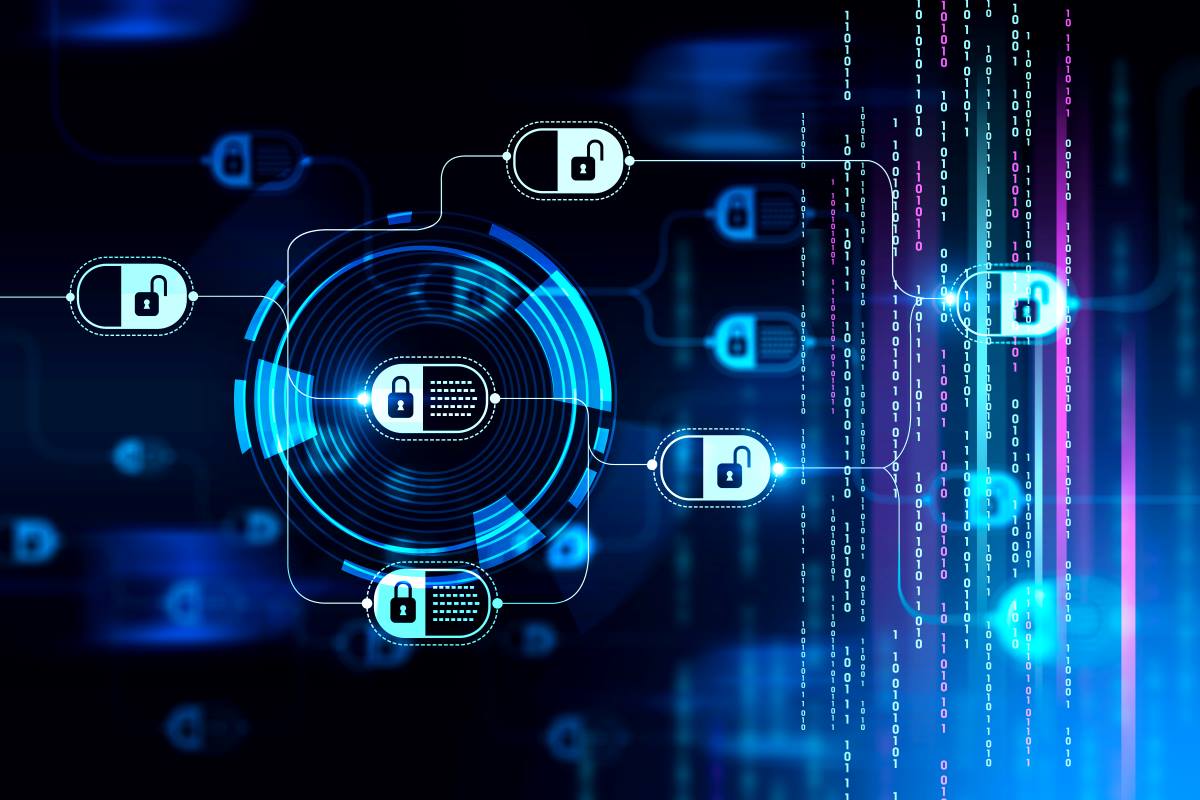Blockchain Software Security
As we move through 2024, blockchain technology is playing a pivotal role in transforming software security. By providing decentralized and tamper-proof solutions, blockchain is addressing many of the security challenges faced by traditional systems. In this article, we will explore how blockchain is redefining software security and the key trends to watch.
Enhanced Data Integrity
One of the core benefits of blockchain technology is its ability to enhance data integrity. By using a decentralized ledger, blockchain ensures that data cannot be altered without detection. This feature is crucial for software security as it prevents unauthorized modifications and maintains the accuracy of records.
Decentralized Identity Management
Blockchain offers a decentralized approach to identity management, which is a significant improvement over traditional methods. This system reduces the risk of identity theft and fraud by eliminating single points of failure. Software applications that incorporate decentralized identity management can provide more secure authentication and authorization processes.

Secure Smart Contracts
Smart contracts are self-executing contracts with the terms of the agreement directly written into code. These contracts run on blockchain technology, ensuring that they are immutable and tamper-proof. The use of smart contracts enhances software security by automating processes and reducing the potential for human error or interference.
Improved Supply Chain Security
Blockchain technology is being increasingly used to secure supply chains. By providing a transparent and immutable record of transactions, blockchain ensures that every step in the supply chain is verifiable and secure. This application of blockchain enhances the software security of supply chain management systems.
Anti-Fraud Solutions
Blockchain’s decentralized and transparent nature makes it an effective tool for combating fraud. By recording transactions on a public ledger, blockchain enables real-time verification and reduces the potential for fraudulent activities. Software solutions that leverage blockchain for anti-fraud measures can significantly improve overall security.
Enhanced Privacy and Confidentiality
Blockchain technology can enhance privacy and confidentiality by using advanced cryptographic techniques. For instance, zero-knowledge proofs allow one party to prove to another that they know a value without revealing any information about that value. This approach strengthens software security by protecting sensitive data.
Secure IoT Integrations
The Internet of Things (IoT) presents unique security challenges due to the vast number of connected devices. Blockchain technology can secure IoT networks by providing a decentralized method of recording and verifying transactions. This enhances the software security of IoT applications by ensuring data integrity and preventing unauthorized access.
Robust Auditing and Compliance
Blockchain technology facilitates robust auditing and compliance by providing an immutable and transparent record of all transactions. This feature is particularly beneficial for industries with stringent regulatory requirements. Software applications that incorporate blockchain can simplify compliance and enhance overall security.
Tamper-Proof Voting Systems
Blockchain is revolutionizing voting systems by providing a secure and transparent method for casting and counting votes. This technology ensures that votes cannot be tampered with and that the voting process is fully auditable. Software solutions that implement blockchain for voting can significantly enhance election security.
Advanced Encryption Techniques
Blockchain employs advanced encryption techniques to secure data. These techniques ensure that data is only accessible to authorized parties and is protected from unauthorized access. Software security is greatly enhanced when blockchain’s encryption methods are used to safeguard sensitive information.

Conclusion
Blockchain technology is redefining software security in 2024 by offering decentralized, transparent, and tamper-proof solutions. From enhancing data integrity to securing IoT integrations, blockchain is addressing many of the security challenges faced by traditional systems. As we continue to explore and implement blockchain technology, its impact on software security will only grow stronger.
Frequently Asked Questions
- What is blockchain technology?
- Blockchain is a decentralized ledger technology that records transactions across multiple computers, ensuring data integrity and security.
- How does blockchain enhance software security?
- Blockchain enhances software security by providing tamper-proof data storage, decentralized identity management, and secure smart contracts.
- What are smart contracts?
- Smart contracts are self-executing contracts with the terms of the agreement written into code, running on blockchain technology.
- How does blockchain improve supply chain security?
- Blockchain provides a transparent and immutable record of transactions, ensuring every step in the supply chain is verifiable and secure.
- How can blockchain help prevent fraud?
- Blockchain’s decentralized nature allows for real-time verification of transactions, reducing the potential for fraudulent activities.
- What is decentralized identity management?
- Decentralized identity management uses blockchain to eliminate single points of failure, reducing the risk of identity theft and fraud.
- How does blockchain enhance privacy and confidentiality?
- Blockchain uses advanced cryptographic techniques, such as zero-knowledge proofs, to protect sensitive data.
- How does blockchain secure IoT integrations?
- Blockchain provides a decentralized method of recording and verifying IoT transactions, ensuring data integrity and preventing unauthorized access.
- What are the benefits of using blockchain for auditing and compliance?
- Blockchain offers an immutable and transparent record of all transactions, simplifying compliance and enhancing security.
- How does blockchain improve voting systems?
- Blockchain provides a secure and transparent method for casting and counting votes, ensuring tamper-proof and auditable elections.



